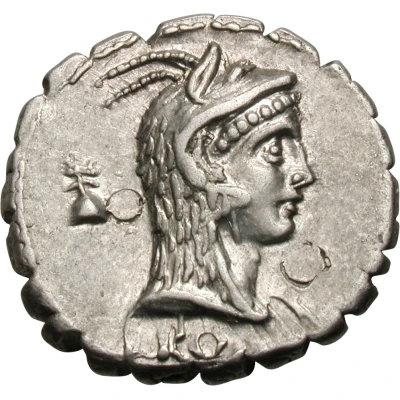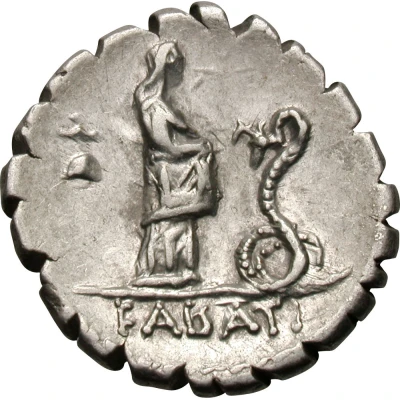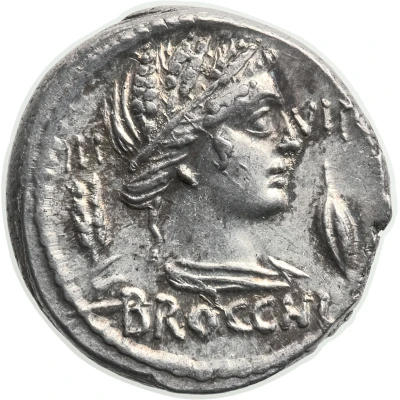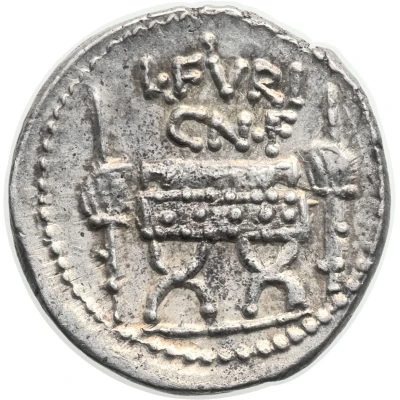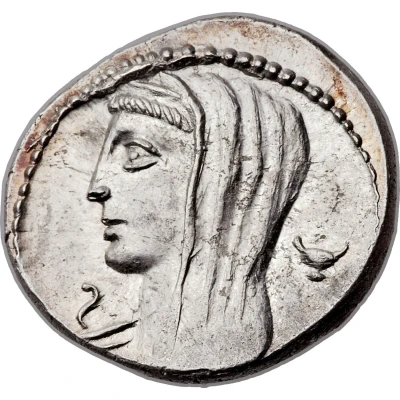
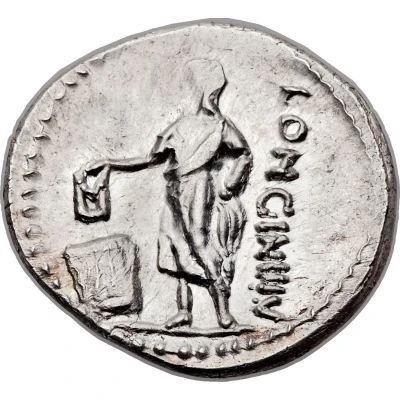

© Heritage Auctions
Denarius Cassia: Lucius Cassius Longinus; LONGIN•III•V 63 BC
63 BC year| Silver | 3.88 g | 20 mm |
| Issuer | Rome › Roman Republic (509 BC - 27 BC) |
|---|---|
| Period | Republic (509 BC - 27 BC) |
| Type | Standard circulation coin |
| Year | 63 BC |
| Value | Denarius (1) |
| Currency | Denarius of 16 Asses (141 – 27 BC) |
| Composition | Silver |
| Weight | 3.88 g |
| Diameter | 20 mm |
| Shape | Round (irregular) |
| Technique | Hammered |
| Orientation | Variable alignment ↺ |
| Demonetized | Yes |
| Updated | 2024-10-06 |
| Numista | N#66654 |
|---|---|
| Rarity index | 93% |
Reverse
Togate citizen standing left, dropping ballot inscribed V into a cista; behind, moneyer mark downwards.
Border of dots.
Script: Latin
Lettering: LONGIN•III•V
Translation:
Longinus Tresvir
([Lucius Cassisus] Longinus, Tresvir [Monetalis])
Edge
Plain
Comment
The gens Cassia was a Roman family of great antiquity originally patrician, but all of the members who appear in later times were plebeians. The first of the Cassii to obtain the consulship was Spurius Cassius Viscellinus, in 502 BC. He was the proposer of the first agrarian law, and was put to death by the patricians. The Cassia gens was reckoned one of the noblest in Rome; and members of it are constantly mentioned under the Empire as well as during the Republic.Interesting fact
One interesting fact about this coin is that it features a portrait of Lucius Cassius Longinus, a Roman politician and military leader, on one side, and an image of a sacrificial scene on the other. The coin was minted during a time of political turmoil in Rome, and the image of Longinus was likely included to promote his political agenda and to solidify his position as a prominent figure in Roman society. Additionally, the fact that it is made of silver and weighs 3.88 grams suggests that it was a valuable and widely used coin during its time.
